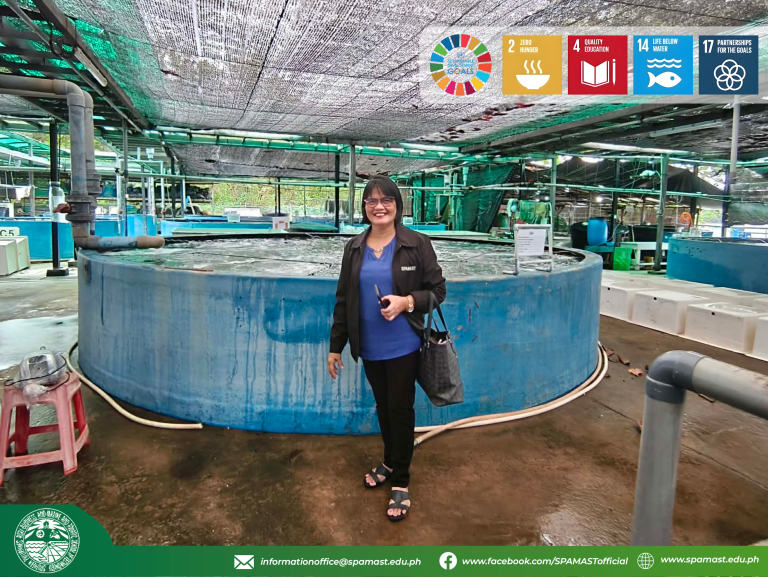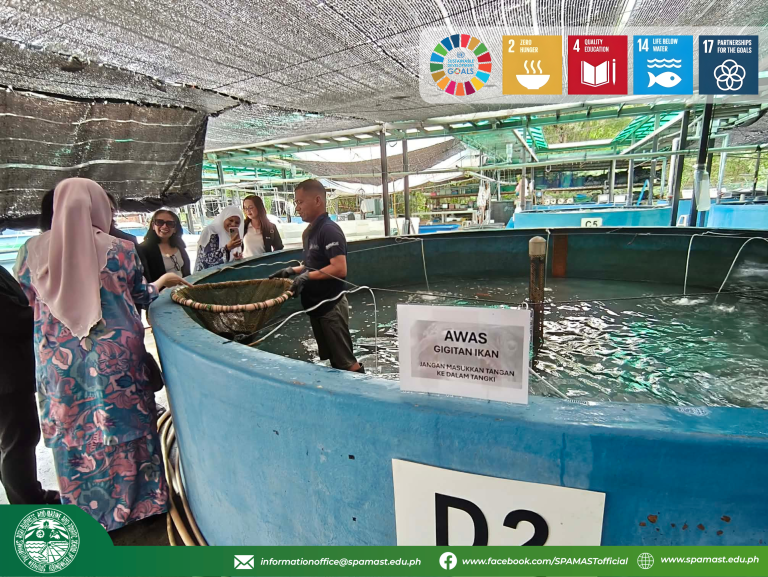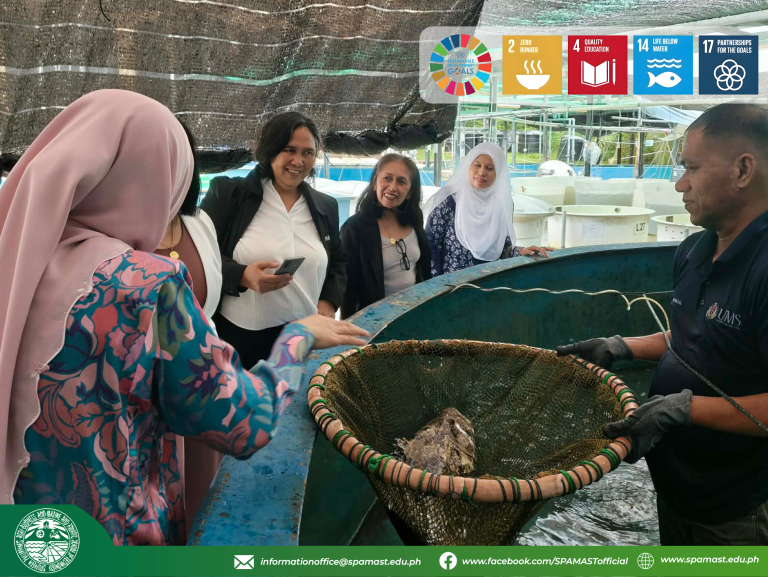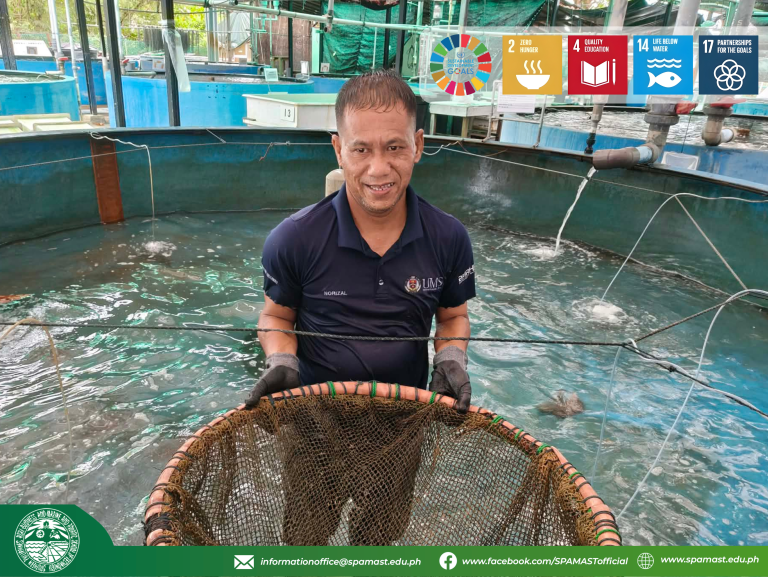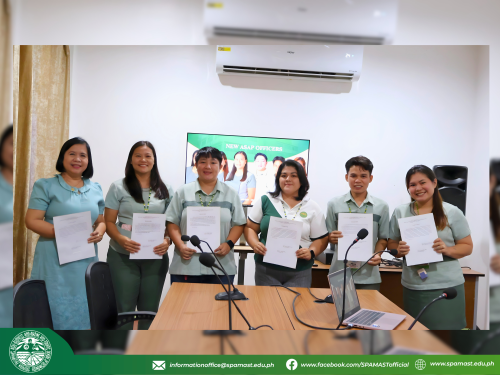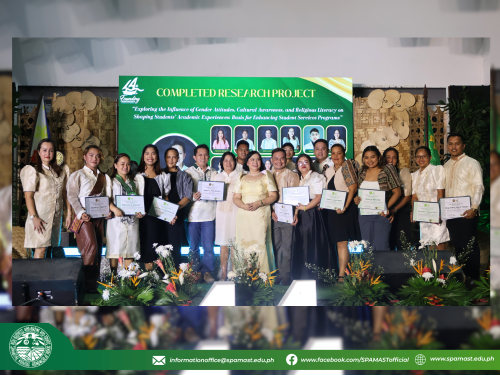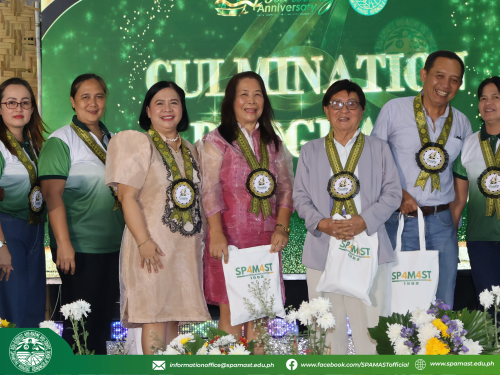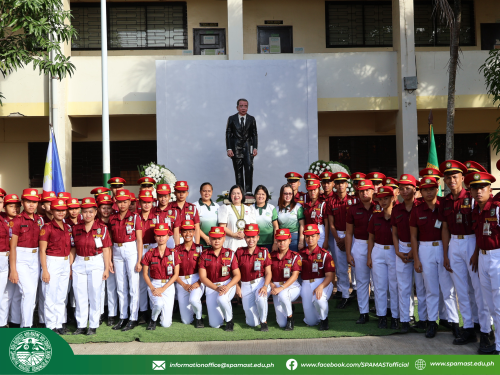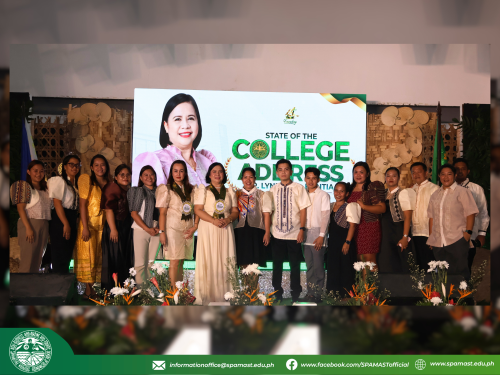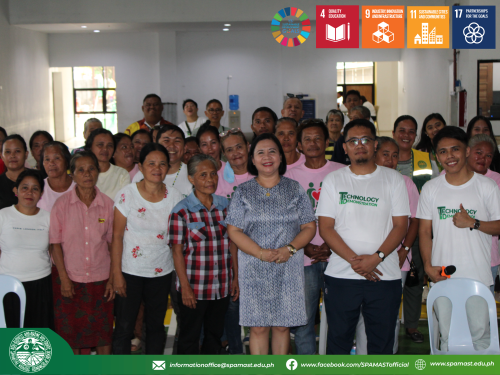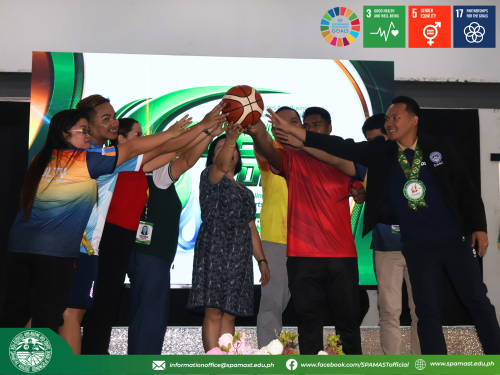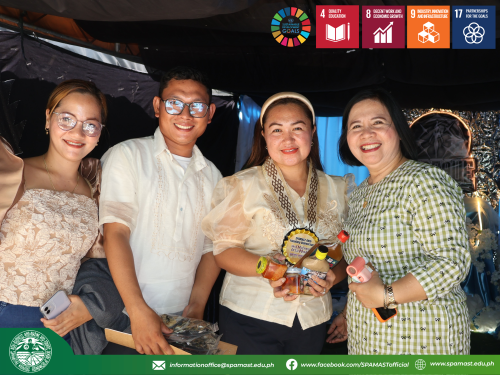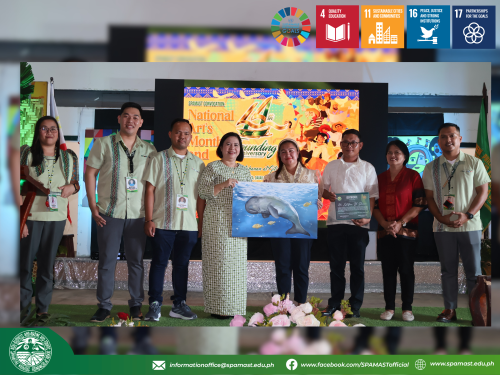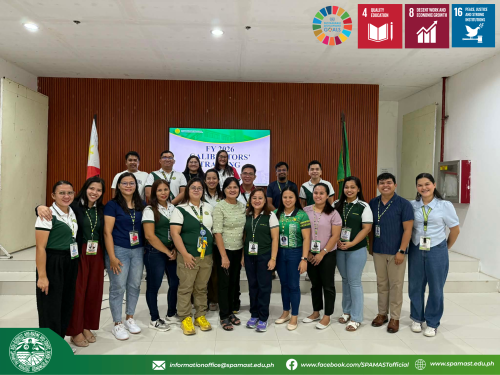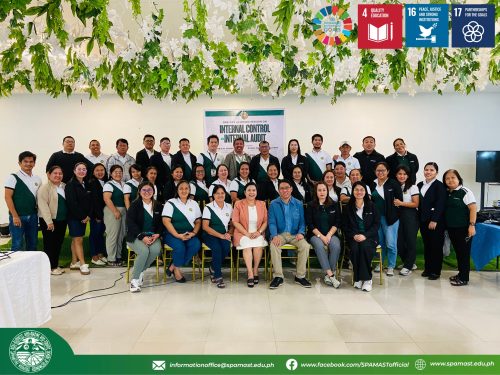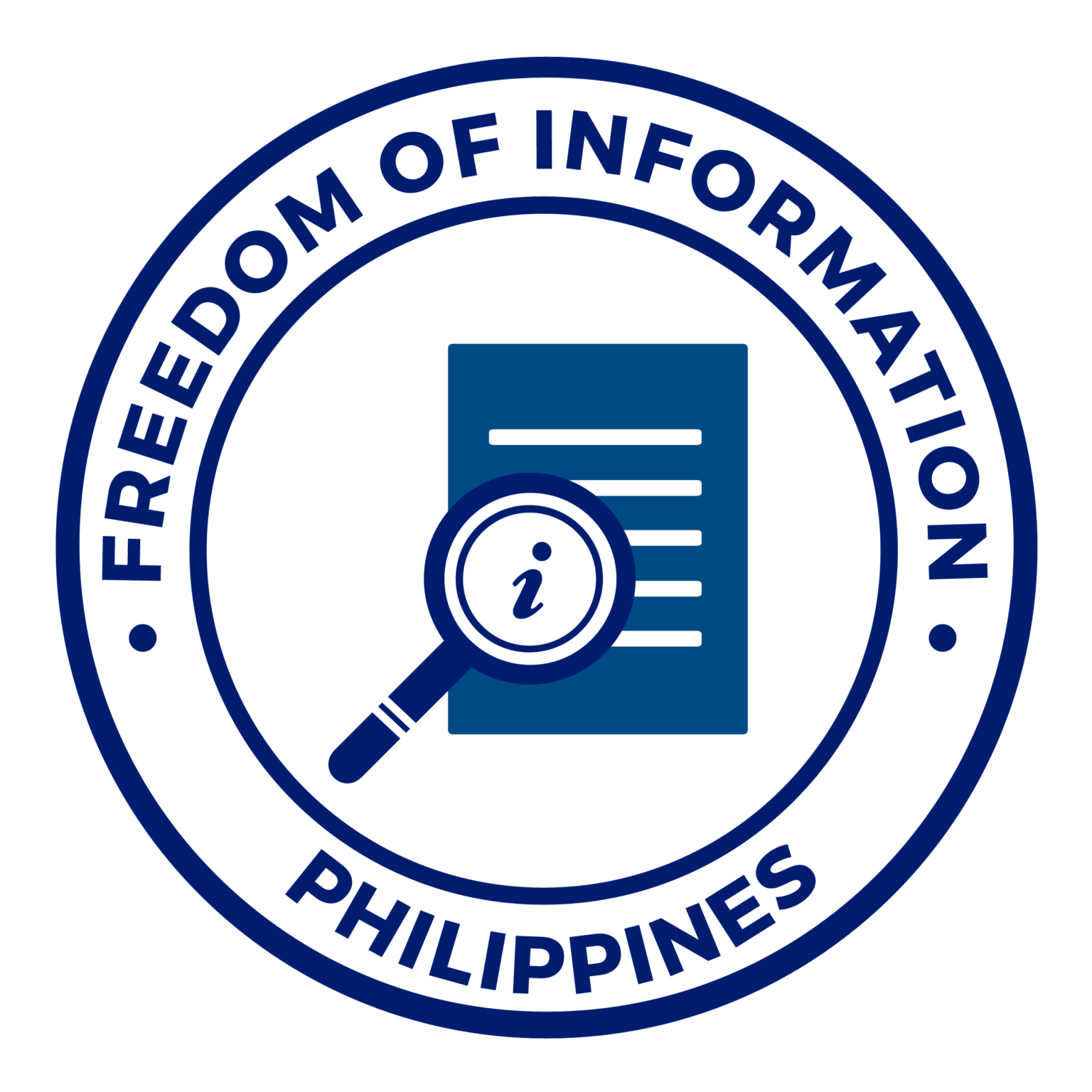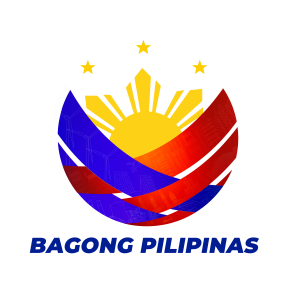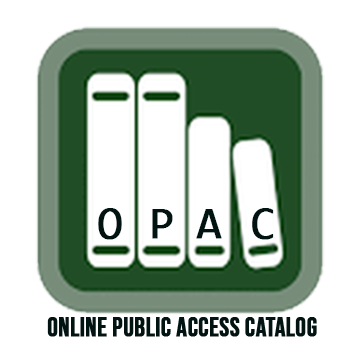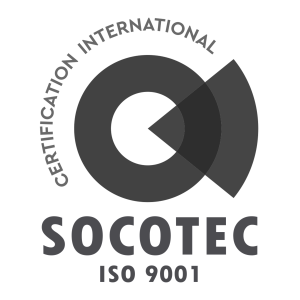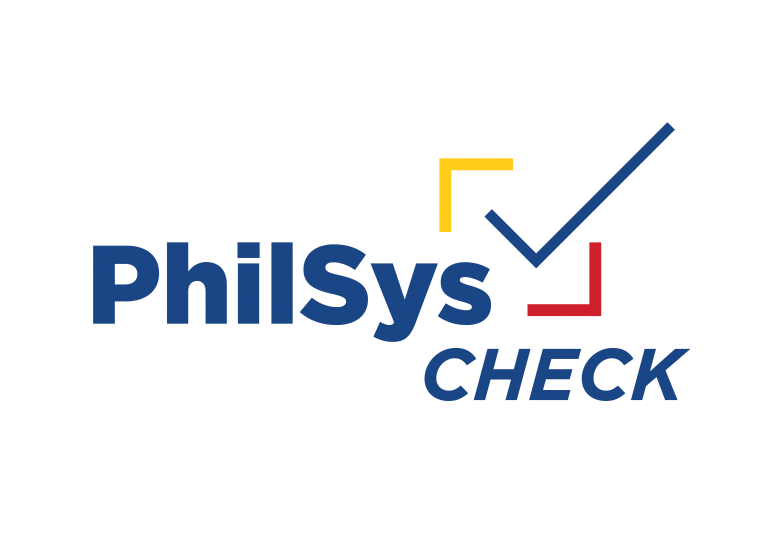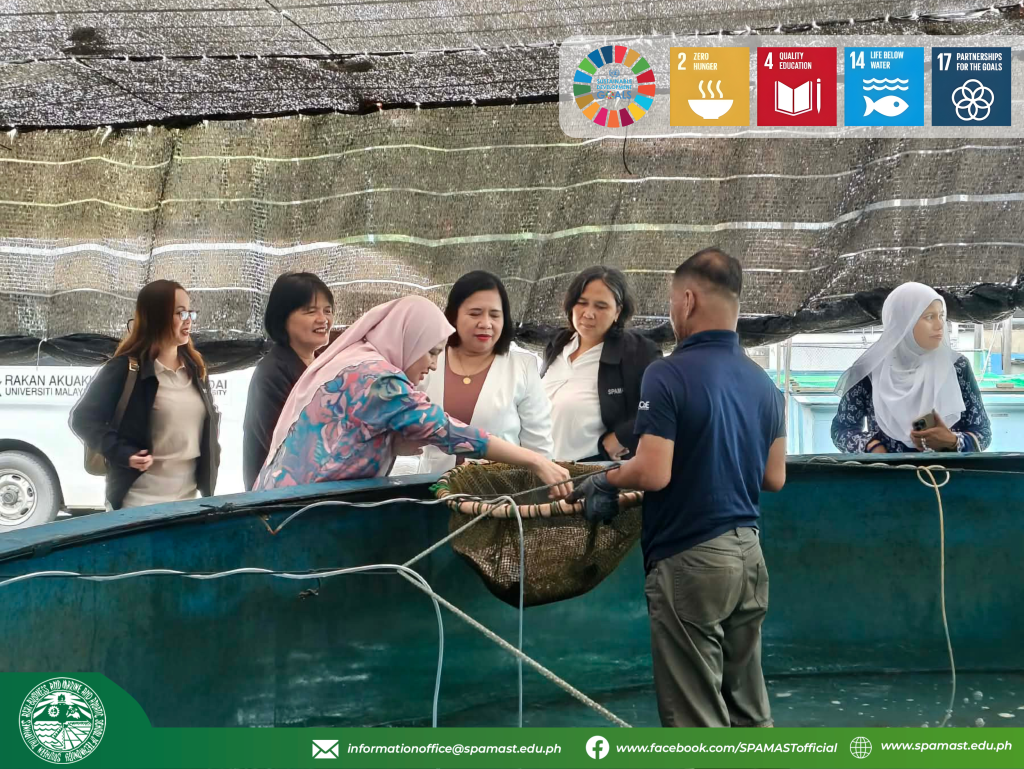
The Southern Philippines Agri-Business and Marine and Aquatic School of Technology (SPAMAST) successfully conducted a benchmarking activity at the Universiti Malaysia Sabah (UMS) Fisheries Center on November 26, 2025, reinforcing its commitment to enhancing fisheries education, research capabilities, and sustainable resource management.
Representing SPAMAST in this strategic engagement were top institutional officials and academic leaders, namely Dr. Lynette A. Bontia, College President; Dr. Edelyn S. Albiso, Vice President for Research, Innovation, Development and Extension; Dr. Marlyn B. Llameg, Vice President for Academic Affairs; Dr. Janet R. Octura, Vice President for Administration and Finance; Dr. Grace D. Buencillo, Director for Research; and Dr. Arneda Jean Gonzales, Director for Internationalization and External Linkages. The team was warmly received by researchers and administrators from UMS who facilitated institutional tours, research discussions, and technology presentations showcasing advanced fisheries development initiatives.
The benchmarking focused on reviewing UMS’s best practices in marine research, aquaculture production systems, laboratory management, and coastal governance. A thorough exchange of expertise took place, highlighting innovative approaches in marine fisheries, climate-adaptive aquaculture, and sustainable seafood production—areas aligned with SPAMAST’s continuous academic and research development efforts.
This international engagement directly supports global sustainability efforts by advancing key United Nations Development Goals. The enhancement of academic programs and research ecosystems contributes significantly to SDG 4 (Quality Education), ensuring that fisheries instruction remains globally relevant and future-ready. Meanwhile, shared research interests in marine biodiversity protection, ecological conservation, and responsible fisheries practices uphold SDG 14 (Life Below Water). Dialogues on coastal livelihood support and food security complement SDG 2 (Zero Hunger), while the establishment of institutional cooperation itself exemplifies SDG 17 (Partnerships for the Goals) by fostering long-term academic, scientific, and community-driven collaboration.
As SPAMAST continues to expand its international linkages, the institution views this benchmarking visit as a vital step toward elevating its fisheries programs to global standards. The collaborative prospects ahead—including joint research, academic mobility, and knowledge exchange—are expected to strengthen fisheries education delivery and generate research outputs that support sustainable marine development in the Philippines and the wider region.
